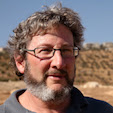Thank yous are on me – to Pres. Schapiro, Provost Linzer, Katherine and Nancy McCormick; to my faculty colleagues who recharge the batteries with me every day; to my students, the ones here and the 30 years’ worth who are out there spanning the globe and putting hopeful lessons into practice and passion; to my family – Margie [who is in large part responsible for me choosing to take the position at NU in 1986] Sylvie and Noah – who are my lifeblood; to my in-laws – Sheldon & Jewell – who’ve taken over for my parents; and to my parents, Marcus and Dora, who provide the dramatic tension and irony for this reflection.
Tuesday, May 27, 2025
The lesson of stories gone untold
On paper, federal income tax forms, for instance, my parents were department store salespeople. They told me virtually nothing about their past, where all the dramatic tension resided. I never knew any of my four grandparents, and to this day, know very little about them. I went into life rootless or root-free. I was always a good student; motivated when a teacher and I conspired to click, and adept at cruise control, for instance, when a 6th grade teacher would turn me upside down in a garbage can, or an 8th grade arts teacher would force me to get on my knees and push a paint brush around with my nose.
By the time I got to NU-Medill to teach, I’d divined that teaching is a collaborative process that can hit its glory days through transformative experiences. For inspiration, I would periodically walk over to the theater building to visit a colleague, with whom I’d gone to school at Grinnell. I’d sit in on an improv or story theater workshop, and like diving into Lake Michigan in the spring, I’d get revitalized. The puzzle, that I still haven’t solved, is how to transport the energy jolts, self-discovery and emotional liberties into a journalistic learning environment. In search of a metric equivalent, I lean on the likes of Rives Collins to bottle the elixir of storytelling. It is part of a potent formula, but it’s not all of it.
Periodically I meet someone who knew my dad. We talk and I find out that my dad was a Talmudic scholar, one of considerable measure, who became a Rabbi at the age of 21, and who underwent a number of rounds of electroshock therapy en route to working as a salesman at Goldblatt’s.
I was sitting in my mom’s apartment, where I’d grown up. I was post-college, probably late 20s, with my Israeli cousin Uri. We were telling stories. I was noting that his mother was the eldest of the family when he corrected me. To the side, my mother was saying, “shhhh, shhh,” only to have my cousin say, “don’t you tell him anything?” Turns out my mom was the oldest of her siblings, that in obtaining phony papers before leaving home in Sanok, Poland, during the Holocaust, she reduced her age on the document by five years so she and her sister who lived as Catholics in Krakow during the war could appear to be girlfriends of the same age rather than sisters. When my mom came to the United States a few years later, she kept the age, thinking that changing it would trigger suspicion. So my mom’s passport and her social security benefits years later are based on lies, fraudulent documents, just the telltale proof to have her deported.
Stories for my parents to tell, gone untold.
For the past few years, I’ve taught a class, Immigrant Connect, that has students venturing off campus into communities to tell stories, and they do an impressive job of it. We’ve met and told evocative stories, of Ahlam Mahmoud, an Iraqi refugee who’s become a single-source safety net for other refugees; of Eugene Peba, who was deported back to Nigeria as my students were documenting to the government that his marriage to a Chicago woman wasn’t a sham; and of Poe Clee whom I accompanied to Myanmar-Burma which he was preparing to call home though he’d never lived there before. We in journalism have recently come to define what journalism is as all about as storytelling, just as theater is all about storytelling, and other disciplines from the sciences to the classics are being schooled to appreciate the verities of storytelling. True, but not true enough.
When I observe in classes that something educational and informative has flashed into something exhilarating and transformative, I’m sensing that it’s less often the final product, the varnished story itself, than it is the process - the interview (in journalistic terms) - but more than that, the inter-connecting, the exchange, the give-and-take, or as we at Northwestern have come to call it, the engagement – global, civic and interpersonal, both on campus and away from the cocoon.
There is something incalculably empowering in listening as well as telling. It is often said that the highest calling in journalism is to give voice to the voiceless. A true virtue, but there’s something more that is at the heart of journalism and of teaching…and that is to give voice lessons to the voiceless. True for the teacher to the student, and also true for the student to those in the community whose stories we commit to tell.
So thank you very much for this opportunity to tell this story, for listening to it, and for engaging with me in a reflection on the exhilaration of teaching.
[This is taken from a talk that I delivered on May 22, 2013 at my installation as a Charles Deering McCormick Professor of Teaching Excellence at Northwestern University]
###
Subscribe to:
Post Comments (Atom)



No comments:
Post a Comment